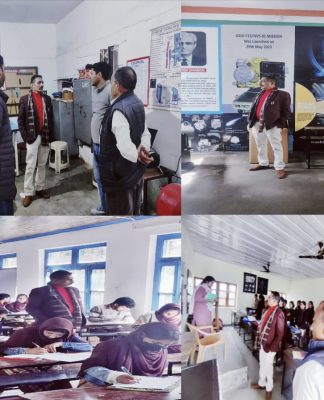New Delhi, June 3: The union cabinet approved amendment to the Essential Commodities Act, 1955, on Wednesday, less than a month after Finance Minister Nirmala Sitharaman announced the central government’s intention to take such a measure.
The cabinet also approved ‘The Farming Produce Trade and Commerce (Promotion and Facilitation) Ordinance, 2020’ and ‘The Farmers (Empowerment and Protection) Agreement on Price Assurance and Farm Services Ordinance, 2020′ to empower farmers to engage with processors, aggregators, wholesalers, large retailers and exporters.
“The APMC Act of the states will remain. The Ordinance is separate from the model APMC Act. It does not touch the market of the States. All States are on board. Punjab and Haryana are big producers of food grain and this law will bring a major change in their lives,” said Agriculture Minister Narendra Singh Tomar, who announced the decisions, said.
Tomar also said that the government had no plans to end the MSP regime as apprehended by farmers of Punjab and Haryana and that government will continue to buy on the support price
“The Narendra Modi government has always worked for the benefit of farmers. The three decisions will bring landmark changes in the agriculture sector. They will go a long way in helping India’s farmers while also transforming the sector,” Union Minister Prakash Javadekar said.
“It is a historic day today. While the country got Independence in 1947, farmers are getting their freedom today. There will be mandis and APMC Act but farmers will be free to trade outside without any State’ tax or legal binding. These are visionary steps towards transformation of agriculture and raising farmers’ income,” Tomar said.
Explaining about the decisions Tomar said though India has become surplus in most agri-commodities, farmers have been unable to get better prices due to lack of investment in cold storage, processing and export as the entrepreneurial spirit gets dampened due to hanging sword of Essential Commodities Act.
“Farmers suffer huge losses when there are bumper harvests of perishable commodities. With adequate processing facilities, much of this wastage can be reduced.This will remove fears of private investors of excessive regulatory interference.
“The freedom to produce, hold, move, distribute and supply will lead to harnessing of economies of scale and attract private sector/foreign direct investment into agriculture sector. It will help drive up investment in cold storages and modernisation of food supply chain.
“The government, while liberalising the regulatory environment, has also ensured that interests of consumers are safeguarded. It has been provided in the amendment that in situations such as war, famine, extraordinary price rise and natural calamity, such agricultural foodstuff can be regulated.
“However, the installed capacity of a value chain participant and the export demand of an exporter will remain exempted from such stock limit imposition so as to ensure that investments in agriculture are not discouraged.
“The amendment announced will help both farmers and consumers while bringing in price stability. It will also prevent wastage of agri-produce that happens due to lack of storage facilities, said the government,” he said.
Regarding the ‘Farming Produce Trade and Commerce (Promotion and Facilitation) Ordinance, Tomar said it was meant to create “selling space” outside the APMC markets and “not replace APMC acts of the States”.
“There are restrictions for farmers in selling agri-produce outside the notified APMC market yards. The farmers are also restricted to sell the produce only to registered licensees of the state governments. Further, Barriers exist in free flow of agriculture produce between various states owing to the prevalence of various APMC legislations enacted by the state governments, he said.
“The ordinance will create an ecosystem where the farmers and traders will enjoy freedom of choice of sale and purchase of agri-produce. It will also promote barrier-free inter-state and intra-state trade and commerce outside the physical premises of markets notified under State Agricultural Produce Marketing legislations. This is a historic-step in unlocking the vastly regulated agriculture markets in the country.
“It will open more choices for the farmer, reduce marketing costs for the farmers and help them in getting better prices. It will also help farmers of regions with surplus produce to get better prices and consumers of regions with shortages, lower prices. The ordinance also proposes an electronic trading in transaction platform for ensuring a seamless trade electronically, “Tomar said.
These proposals were part of the Rs 20 lakh crore economic package announced to help those affected due to the lockdown clamped to fight the spread of COVID-19 disease.
In a series of announcements she made last month, Sitharaman had said her government would amend the act to deregulate cereals, edible oil, oil seeds, onions and potatoes. She also said stock limits will be subject to the installed capacity and this facility will also be extended exporters.



















































